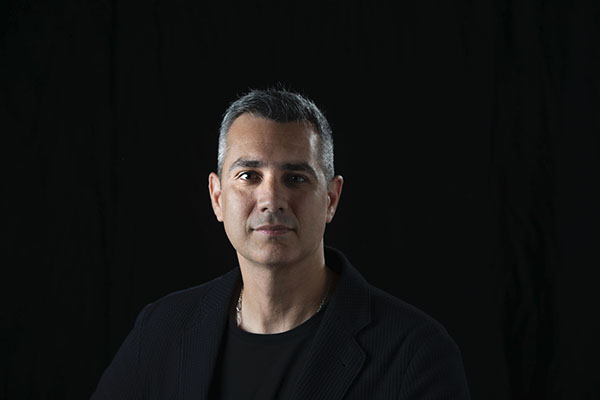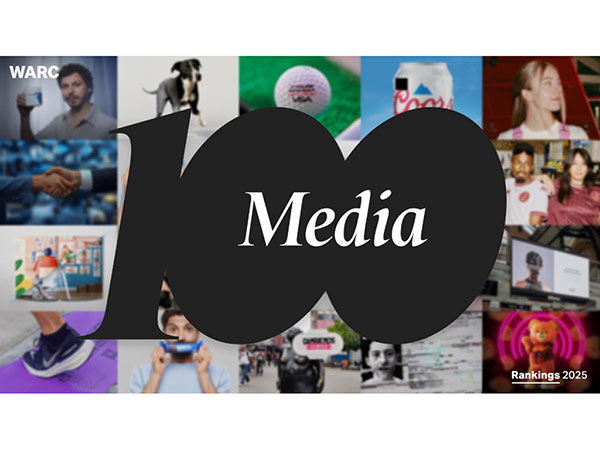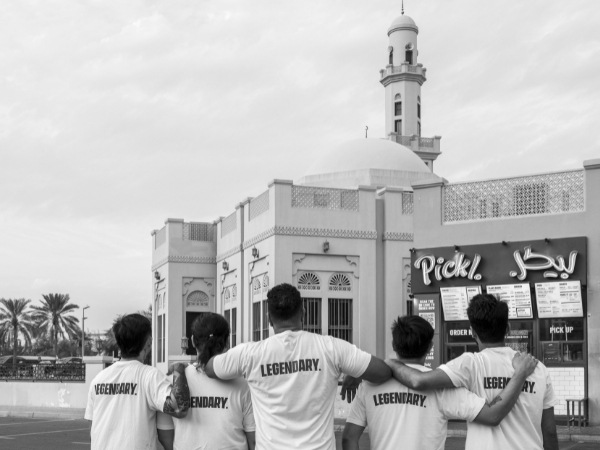News - Advertising
On Making Advertising Part of People’s Lives – An interview with André Felix of WhatsApp
by Mark Tungate
October 6, 2021

The global creative director of WhatsApp, André Felix, talks innovation, emotion, and breaking the screen between physical and digital.
The first thing you notice when you start chatting to André Felix (or simply “Felix”, as he prefers to be known) is his accent: rich, lilting, Brazilian. “I know my English accent is shit,” he says, with a laugh. Later he draws a comparison with Charlie Chaplin: “Good ideas have no language. You may not quickly understand what I’m saying, but you can feel my passion. It’s the same with Charlie Chaplin. You can’t listen to what he’s saying – but you feel what he’s saying.”
His accent certainly hasn’t hampered his stellar career, which has taken him to the global creative role at WhatsApp. His story is all the more remarkable given that he grew up in a favela – a Rio de Janeiro shanty town. (Not far from the notorious one in the film City of God, he tells me.) Learning to code was his way out.
“My first job was with a small independent agency in Rio,” he says. “It’s a funny story, because I was the system administrator. But when I saw all the creativity around me, I thought, ‘Wow! This is so cool! I want to do something like this.’ So I went to university to study advertising.”
Once fully versed in copywriting and creative technology, he moved to Sao Paulo to be close to the country’s biggest agencies. After several posts he landed at TBWA, where he headed the agency’s digital creativity. That turned out to be his last agency in Brazil, because in 2015 he won a handful of Lions – including a Gold – which opened up an international career. The award-winning work, “Meeting Murilo” for Huggies, involved 3D printing a baby’s ultrasound for a blind pregnant woman.
TBWA CEO Rob Schwartz tapped him for a role at Zimmerman in Florida. “He told me they needed my digital expertise. I said, ‘Okay. Well, my English is shitty but let’s go!’ And it was an amazing experience. I had 26 people in my team – incredible! The founder, Jordan Zimmerman is a great guy, definitely one of my mentors.”
Since Zimmerman it’s been starry names all the way: digital creative director at the Walt Disney Company, ECD at J. Walter Thompson in Lisbon – and now WhatsApp. “What happened was that my Green Card finally came though,” he recounts. “So I resigned my position at JWT, packed my bags and came back to Miami. That’s when I was proposed the job here at WhatsApp.”
“I think the purpose of brands is to improve people’s lives. Everybody hates advertising.”
I noticed on LinkedIn that he has a curious title: Global Creative Director Guardian of Privacy. Turns out it’s part of a WhatsApp campaign. “WhatsApp is all about privacy, because the app is encrypted – really encrypted – end-to-end. When I first arrived here, my desk was next to the place where the engineers sit, so I asked one of them: ‘Is it really encrypted?’ And the guy said, ‘Sure – not even Mark Zuckerberg can read your mails.’ Cool, good to know.”
The privacy factor drove the first global campaign in the history of the 12-year-old app, “It’s between you”, which rolled out initially in Brazil via Almap BBDO. Adding the words “Guardian of Privacy” to the WhatsApp team’s job titles was another component of the strategy, to underline their pride in the concept.
Each app within Facebook has its own in-house creative team, Felix explains, known collectively as Creative X. Their three goals are to manage and co-create with the global agency (in this case BBDO), to generate digital ideas that will amplify campaigns on the organisation’s platforms, and to stimulate the app’s growth.
WhatsApp is an increasingly popular communication service – but does it have potential as a creative tool? Felix thinks of it as a platform for innovation. One of the latest functionalities is “fast forward” – you can listen to your audio messages up to twice as fast, when you need to save time. “We also have different scenarios for accessibility: for example, for blind people there’s an ‘automatic selfie’ function. And you can use that selfie to unlock a conversation.”
Early into the pandemic, the app waged war against fake news via a partnership with Google called “Check It Before You Share It”. If you received a message about the virus whose credibility looked doubtful, you could verify via a chatbot whether it was fake or true.
Felix’s involvement in meaningful work made him a natural for the jury of AdForum’s PHNX awards, which honour transformative campaigns. Does he expect a change in the way brands communicate as we enter a new world emerging from the pandemic?
“I think the purpose of brands is to improve people’s lives. Everybody hates advertising,” he says, with a wry smile in his voice. “Look at ‘skip ads’. Everyone skips the ads on YouTube, because advertising is boring! My point of view is: how can I do authentic and ‘true’ advertising? Make advertising that’s part of people’s lives?”
The pandemic lockdowns challenged advertising, he points out, because we learned that we don’t need to constantly consume. “Turns out we need less things than we thought. So the message can no longer just be about buying – it has to be more emotional.”
Felix excels in drawing emotion from what could be a banal scenario: an ad for a nappy brand allowed a blind woman to “feel” her baby before he was born. “It’s because I believe in true insights, from real people. I go out on the street, see people’s behaviour, start conversations. I’ll talk to the cashier at the 7-Eleven, take the bus or the train. Because I love to break out of my bubble. A lot of advertising guys live in a bubble, or they make ads for their own egos. But I want to make ideas that improve real lives.”
He reveals that the Huggies idea was based on a gift he gave his wife when she was pregnant. When she held the 3D printout of their baby, she said, “If only you could amplify this emotion for other moms.” So he kept the idea “in my pocket”. Similarly, when he was in Lisbon, his son had a couple of Chinese friends who were being bullied online, which inspired a campaign against cyber-bullying.
It’s one of the things that appeals to him about WhatsApp – an app used by over two billion people worldwide. “I honestly believe we’re doing something useful,” he says.
“Turns out we need less things than we thought. So the message can no longer just be about buying – it has to be more emotional.”
Blurring the borders between the physical and digital worlds – he calls it “phygital” – is clearly his favourite creative playground. “At Walt Disney we did a campaign called ‘Likes for lights’.” It sprung from the insight that switching on the Christmas tree lights at the Rockefeller Center in New York was a big deal – while Los Angeles had no such tradition. The result: a Facebook Live event during which thousands of “likes” lit up the real Christmas tree at Disneyland, followed by a fake snow shower. “This was before the pandemic, but it showed that people want and need experience. Phygital is all about creating experiences.”
Felix had only been working at WhatsApp for a few months when the pandemic hit. Just before lockdown, he gave up the flat he was renting in California and returned with his wife to Miami, which they both love. Since then he and his team have made 22 films in six countries – all while working remotely. He now plans to stay in Miami permanently, with regular travel to New York or L.A.
“We showed that it’s possible to produce high quality ideas and films, less expensively, while working remotely. If you have clear goals, and you deliver on those goals – what’s the problem?”
A positive end to a positive conversation – and all conducted over WhatsApp, naturally.
This interview was first published on Epica website.










